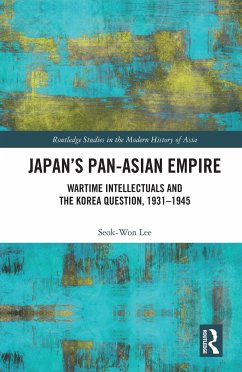This book is a study of how the theories and actual practices of a Pan-Asian empire were produced during Japan's war, 1931-1945.
As Japan invaded China and conducted a full-scale war against the United States in the late 1930s and early 1940s, several versions of a Pan-Asian empire were presented by Japanese intellectuals, in order to maximize wartime collaboration and mobilization in China and the colonies. A broad group of social scientists - including R yama Masamichi, Kada Tetsuji, Ezawa J ji, Takata Yasuma, and Shinmei Masamichi - presented highly politicized visions of a new Asia characterized by a newly shared Asian identity. Critically examining how Japanese social scientists contrived the logic of a Japan-led East Asian community, Part I of this book demonstrates the violent nature of imperial knowledge production which buttresses colonial developmentalism. In Part II, the book also explores questions around the (re)making of colonial Korea as part of Japan'sregional empire, generating theoretical and realistic tensions between resistance and collaboration.
Japan's Pan-Asian Empire provides original theoretical perspectives on the construction of a multi-ethnic and multi-cultural empire. It will appeal to students and scholars of modern Japanese history, colonial and postcolonial studies, as well as Korean studies.
As Japan invaded China and conducted a full-scale war against the United States in the late 1930s and early 1940s, several versions of a Pan-Asian empire were presented by Japanese intellectuals, in order to maximize wartime collaboration and mobilization in China and the colonies. A broad group of social scientists - including R yama Masamichi, Kada Tetsuji, Ezawa J ji, Takata Yasuma, and Shinmei Masamichi - presented highly politicized visions of a new Asia characterized by a newly shared Asian identity. Critically examining how Japanese social scientists contrived the logic of a Japan-led East Asian community, Part I of this book demonstrates the violent nature of imperial knowledge production which buttresses colonial developmentalism. In Part II, the book also explores questions around the (re)making of colonial Korea as part of Japan'sregional empire, generating theoretical and realistic tensions between resistance and collaboration.
Japan's Pan-Asian Empire provides original theoretical perspectives on the construction of a multi-ethnic and multi-cultural empire. It will appeal to students and scholars of modern Japanese history, colonial and postcolonial studies, as well as Korean studies.

